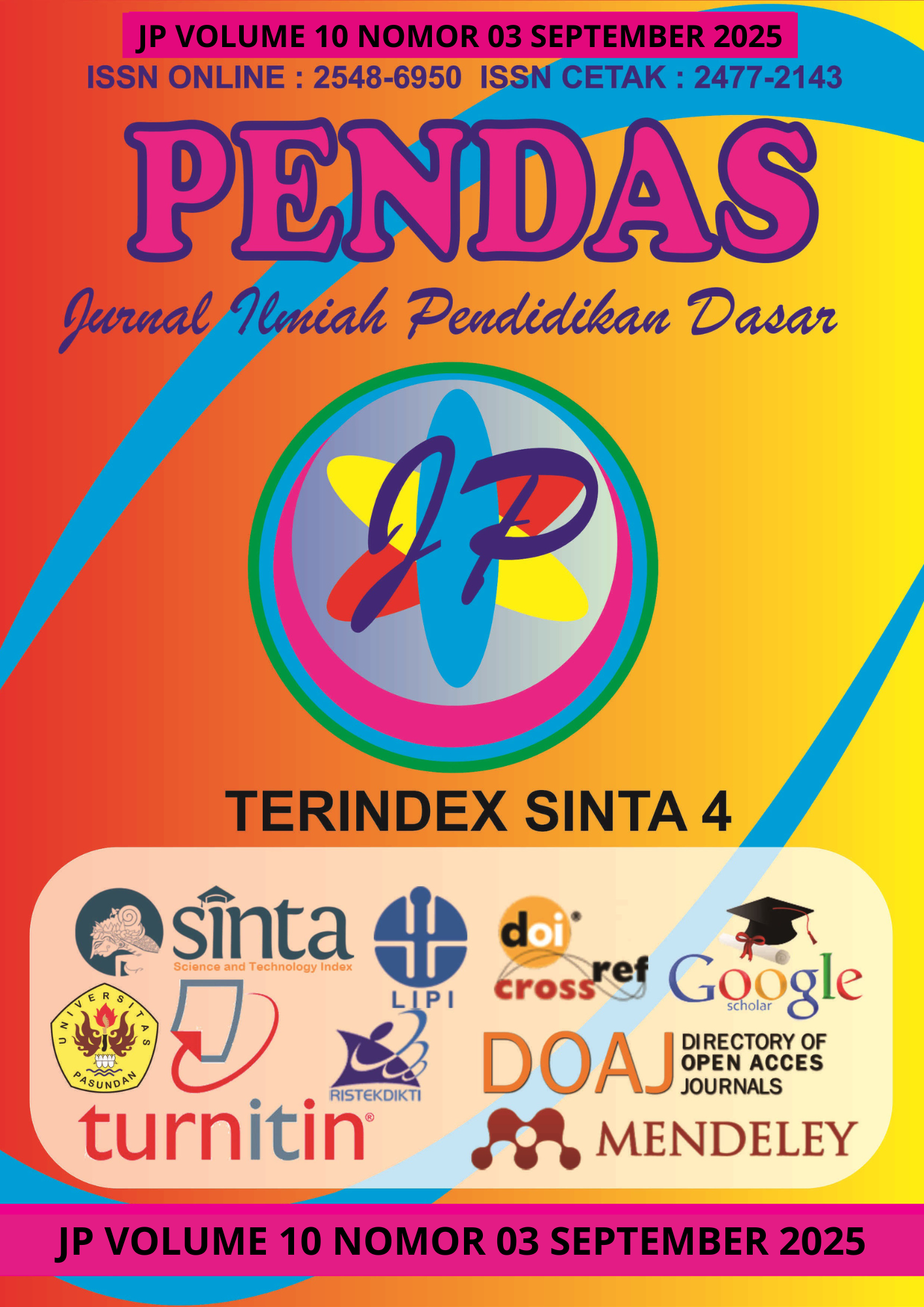MANAJEMEN MUTU KELAS DALAM MENINGKATKAN EFEKTIVITAS BELAJAR SISWA SEKOLAH DASAR
DOI:
https://doi.org/10.23969/jp.v10i3.28262Keywords:
learning effectiveness, class quality management, elementary schoolAbstract
This study aims to describe and analyze the implementation of class quality management in improving the effectiveness of student learning in elementary schools. The background of this study is the low effectiveness of learning caused by various factors, such as lack of student learning motivation, non-varied learning methods, less conducive learning environments, and limited classroom management by teachers. This study uses a qualitative approach with a case study method, which was carried out in two elementary schools, namely SDN Cijati and SDN Tanjungsari. Data collection was carried out using observation techniques, in-depth interviews, and documentation reviews. The results of the study indicate that well-planned and organized class quality management is able to create a more conducive learning environment, increase student involvement in the learning process, and encourage teachers to use more innovative learning methods and media. Supporting factors in the implementation of class quality management include support from the principal, regular teacher training, and parental involvement. Meanwhile, the challenges faced include limited facilities and infrastructure and the level of student heterogeneity. The conclusion of this study is that the implementation of systematic and sustainable class quality management contributes significantly to improving the effectiveness of student learning in elementary schools
Downloads
References
Annisa, R. R., Pratisti, W. D., & Uyun, Z. (2022). Efektivitas manajemen kelas untuk menurunkan gangguan konsentrasi belajar matematika pada siswa SD. Journal of Psychological Science and Profession, 9(2). https://doi.org/10.24198/jpsp.v9i2.22353
Arikunto, S. (2013). Manajemen pendidikan. Rineka Cipta.
Daryanto. (2011). Manajemen kelas. Gava Media.
Deming, W. E. (1986). Out of the crisis. Massachusetts Institute of Technology, Center for Advanced Engineering Study.
Depdiknas. (2003). Undang-Undang Sistem Pendidikan Nasional Nomor 20 Tahun 2003. Depdiknas.
Dimiyanti, D., Abduh, T., & Suriani, S. (2022). Penerapan manajemen mutu pendidik terhadap minat belajar siswa pada SD Negeri 228 Lagarong Kabupaten Luwu Timur. Journal Unibos. https://doi.org/10.35965/bje.v2i2.1482
Fattah, N. (2000). Landasan manajemen pendidikan. Remaja Rosdakarya.
Hadi, R. (2023). Implementasi strategi manajemen kelas yang efektif dalam meningkatkan pembelajaran di sekolah dasar. JUPE: Jurnal Pendidikan Mandala, 8(2). https://doi.org/10.58258/jupe.v8i2.5512
Mulyasa, E. (2009). Manajemen berbasis sekolah: Konsep, strategi, dan implementasi. Remaja Rosdakarya.
Mulyasa, E. (2011). Manajemen dan kepemimpinan kepala sekolah. Bumi Aksara.
Nurmaya, A. L. G. (2019). Peranan manajemen kelas dalam meningkatkan efektivitas pembelajaran di sekolah dasar. Jurnal Basicedu, 3(2). https://doi.org/10.31004/basicedu.v3i2.275
Piaget, J. (1973). To understand is to invent: The future of education. Grossman Publishers.
Rukmana, T. N. O., & Trihantoyo, S. (2023). Urgensi penerapan manajemen kelas dalam memantau perkembangan belajar peserta didik sekolah dasar. Inspirasi Manajemen Pendidikan, 8(2). https://doi.org/10.21070/inspirasi.v8i2.38103
Sagala, S. (2010). Manajemen strategik dalam peningkatan mutu pendidikan. Alfabeta.
Sanjaya, W. (2008). Perencanaan dan desain sistem pembelajaran. Kencana Prenadamedia Group.
Sari, R. N. (2022). Manajemen kelas dalam meningkatkan efektivitas pembelajaran. Jurnal Pendidikan Tambusai, 6(1). https://doi.org/10.31004/jptam.v6i1.3214
Suharsimi, A. (2008). Prosedur penelitian: Suatu pendekatan praktik. Rineka Cipta.
Suryosubroto, B. (2009). Proses belajar mengajar di sekolah. Rineka Cipta.
Downloads
Published
Issue
Section
License
Copyright (c) 2025 Pendas : Jurnal Ilmiah Pendidikan Dasar

This work is licensed under a Creative Commons Attribution 4.0 International License.



















